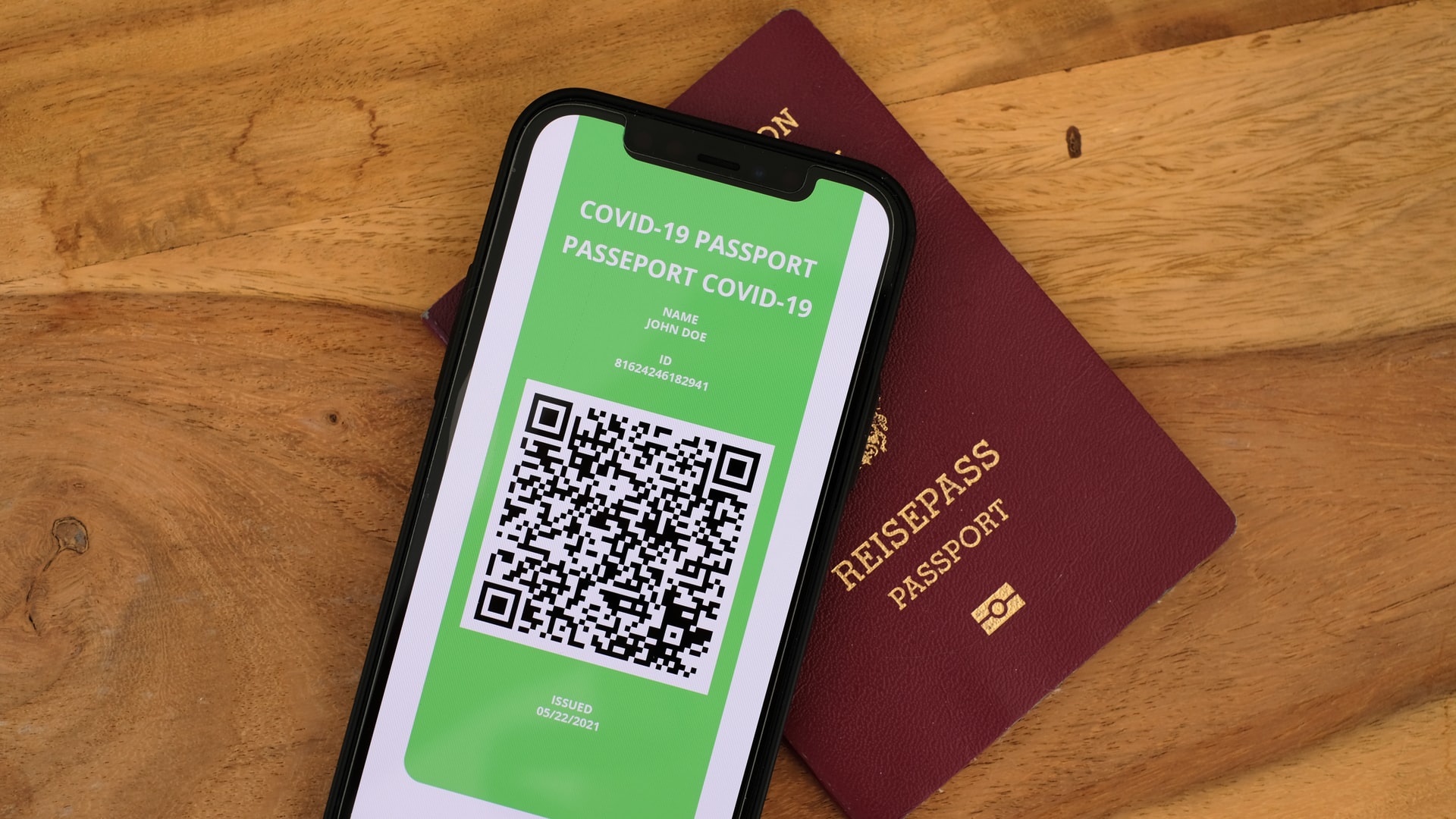Vaccine Passports
Proof of vaccination against the SARS-CoV-2 coronavirus, or “vaccine passports,” have been suggested as a tool to let us safely resume some higher-risk activities while the virus is still present in our communities. Is this a good idea?
The rationale is this: Fully vaccinated people are extremely unlikely to be sickened by the virus even if they’re exposed (see my blog post). Therefore, people who can prove that they are vaccinated could be allowed to gather in large groups, travel, attend indoor shows, etc. People who have not been vaccinated are at much higher risk of contracting and spreading the coronavirus, so they should be excluded from such for their own protection and the protection of the community.
In theory, vaccine passports could allow a faster return to “normal” for some people. They could accelerate economic recovery in key areas like professional sports, restaurants, and conventions.
Sounds good. Why not?
The idea makes sense but I’m not a fan. I’m sure some of you will disagree. Here are my reasons.
Reason #1: Fraud
Since the mRNA vaccines were conditionally approved in December, our goal has been to get vaccines injected into as many arms as possible as quickly as possible. Vaccine distribution has been dispersed across thousands of clinics, hospitals, nursing homes, pharmacies, supermarkets, churches, parking lots, prisons, homeless camps, etc. Maybe good records were kept. Maybe IDs were checked. Maybe not. The only proof of vaccination a lot of people have is an index card with some handwritten scribbles on it. And that’s fine, because the main purpose was to assure they returned for a second dose of the same vaccine.
I don’t see how this system could work as the basis for a vaccine passport. Anybody could forge a COVID vaccination record card. And surely some people have lost their cards. If a national record had been established from the beginning, vaccine passports would at least be feasible. Now, I think the horse has left the barn. A motivated anti-vaxxer will just get a fake vaccine credential.
If it turns out that annual booster shots are needed, then the vaccine passport tracking bureaucracy would be that much greater, and ongoing.
I give some more reasons below, but #1 carries the most weight.
Reason #2: Cultural strife
I’m hopeful that many people who are hesitant to get a COVID vaccine will come around eventually. But I recognize that a great many people are deeply opposed to vaccination in general, or COVID vaccination in particular. I think they’ve been misled and betrayed by influencers on the internet and in their social circles. But their beliefs are sincerely and strongly held. State-sponsored vaccine passports would cause further damage to our civic life and give fuel to conspiratorial, anti-public health forces.
Reason #3: Is it worth it?
If I believed that state-sponsored vaccine passports could save many lives or were crucial to our economic recovery, then both #1 and #2 wouldn’t stand in the way. We could find a way to meet the difficulty and costs. But I don’t.
The new COVID vaccines, especially the mRNA ones, are astoundingly effective. Not all vaccines are that good. Some give only modest protection to the individual and do their most important work in the “herd” by ending spread of the infection in the community. In contrast, the COVID vaccines are close to 100% effective at preventing death. That means my life does not depend on your vaccination. If you refuse the vaccine, should I care? If you get sick, well, that’s how nature works.
I exaggerate and simplify but my point is, with this particular virus and these particular vaccines, it’s not worth it to go to war over certifying that someone is fully vaccinated.
Reason #4: Alternatives exist
The best alternative to vaccine passports is to put our effort into actually getting people vaccinated. Rather than go to great lengths to piss off the vaccine hesitaters, how about we work to convince as many of them as possible and make it easy to get a jab? Then let’s make it the social norm that vaccination is expected at basically everything, even if we don’t demand people to prove it.
Antigen testing for infection could be an option for big gatherings like conventions, arena events, cruises, or weddings. COVID antigen tests are cheap and fast and they identify the majority of people capable of spreading the virus. Proof of a negative antigen test 24 hours before an event could be required of all participants. (Technical note: Because of the low pre-test probability of a positive result, all positives might need to be confirmed by a nucleic acid amplification test. CDC) Antigen tests are far from perfect but I’m not looking for a risk-free or “zero COVID” world. And again, see Reason #1.
Specialized, small-scale vaccine certification could be designed at private expense for certain private purposes, such as flying on a particular airline. But without the resources of the federal or state government, I don’t see how this could be secure enough to be more than expensive security theater. See Reason #1.
It’s complicated
There’s much more to be said about these topics. I’ve glossed over many details, subtleties, and complexities. What about liability? How can employers or universities or cruise ships enforce a vaccine requirement without vaccine passports to certify? What about people who are immunocompromised or can’t be vaccinated for medical reasons?
As always I reserve the right to change my mind. But for the moment, I think the potential benefits of a state-sponsored vaccine passport system do not justify the costs. And private vaccine passports would be a pageant whose main benefit is liability protection, not public health. Because how are you going to prove vaccination status after the fact?
————————
“Already, the rollout of vaccines has dramatically changed the dynamics of the U.S. epidemic. Hospitalization and death rates among older adults — the population with the highest immunization coverage — have plummeted, while hospitalizations among younger adults have also started to come down more recently. Whereas for the first year of the pandemic hospitalizations and deaths would follow case counts in predictable patterns, experts now speak of vaccines “decoupling” those metrics because they are so powerfully protective against the worst outcomes of the disease.” StatNews April 23, 2021
Have you been vaccinated yet? If you live in California and are age 16 or older, you’re eligible now!
Visit https://myturn.ca.gov/ to find appointments for a FREE vaccine near you.
Amy Rogers, MD, PhD, is a Harvard-educated scientist, novelist, journalist, and educator. Learn more about Amy’s science thriller novels, or download a free ebook on the scientific backstory of SARS-CoV-2 and emerging infections, at AmyRogers.com.



